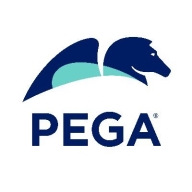



Find out what your peers are saying about UiPath, Automation Anywhere, Microsoft and others in Robotic Process Automation (RPA).
Fortra's Automate has effectively replaced the workload of an entire employee, saving us significant time and money.
It has reduced our expenditures in terms of purchasing more products and employing more technicians.
I've seen a good return on investment with Automate, as it streamlines processes and improves my productivity.
Salesforce Sales Cloud is a fantastic tool but requires disciplined data entry by sales personnel and operations teams to maintain data quality.
It has saved about 20% to 30% of costs.
We have seen a 100% return on investment.
UiPath has reduced human error and saved employee time.
They don't always understand the processes I'm trying to implement.
I would rate the technical support as a nine out of ten because it is quite fast and courteous.
They are very responsive and have been able to resolve any issues I have encountered.
Support requires a subscription and when taken, the service is pretty nice.
They were very helpful, addressing the issue in three hours.
The customer support from UiPath is amazing.
Initially, it was very difficult to get support, but nowadays, we do not have to go for support because most things get solved in the community itself.
It is easy to increase one bot or one studio without needing to buy another orchestrator, which can be quite expensive.
Salesforce is highly scalable and operates efficiently.
Salesforce Sales Cloud is totally cloud native, requiring no additional effort for scalability.
The solution is capable of scaling with just a few clicks.
It is being used at multiple locations by many customers.
You just need to change the number of robots for the process, and then it works very fast.
It has very robust features, and it is not prone to instability.
The stability of Fortra's Automate is excellent.
The stability is good and consistent, with no fluctuations in functioning.
Salesforce Sales Cloud is very stable.
I have not experienced any degradation in Salesforce's performance.
In the beginning, we depended on our infrastructure. However, now that we have services on the cloud, it is very stable.
In eight years, there have been virtually no downtime instances.
I'd rate stability nine out of ten.
I would prefer not having to log in to update a ticket; being able to respond via email would be beneficial.
Integration with Amazon S3 is somewhat lacking.
I find that most important features are strong, however, there is a lack of good development for artificial intelligence, such as machine learning.
Compared to AWS, it is slower, which could be a hindrance.
With today's generative AI capabilities like ChatGPT, it should be possible to directly communicate with the software rather than navigating through the entire system manually.
Adding more AI could help in small tasks that require intelligence or machine learning, leading to the next stage of automation.
If the UI changes or a label is changed, sometimes the whole flow breaks.
Regarding additional functionality for UiPath, I believe that additional features will only come into play when you start talking to the customers, accept feedback, and work on it.
Competitors are often more expensive than Automate.
It offered what we wanted at a good, competitive price.
It does a lot but also costs a lot.
Without negotiation, costs can become expensive.
Most of the UiPath products are priced higher than competitors.
The cost can be a barrier in Hungary, making it difficult for me to persuade others to invest, especially when unattended robots come at a significant price point.
When compared to competition, such as Microsoft's Power Automate platform or IBM Cloud Pak, UiPath is expensive.
Automate's non-reliance on additional orchestrators makes it quite cost-effective.
I find the ease of use from a programming perspective very valuable.
The most valuable features of Fortra's Automate include its FTP functionality and file manipulation capabilities.
Its easy-to-navigate interface aids in delivering clear vision and organization, especially for sales and business management.
The Einstein Analytics and the inbuilt reporting are very useful for keeping track of pipeline movement.
The tool has a noticeable ROI, and the investment is worth every penny as it reduces tedious tasks and improves scalability.
Our use of automation sped up the process of getting paid from insurance companies, saving us substantial amounts of money.
Whenever they release a product, they also release a course in UiPath Academy. So, you can get familiarized with the product and understand the new capabilities.




Automate offers a user-friendly solution with a drag-and-drop interface for efficient task automation and integration with major platforms like SAP and Azure, making it ideal for quick deployment with minimal coding and training.
Automate provides powerful features for businesses seeking efficient automation, offering compatibility with databases, email integration, and cloud platforms. Its simple interface supports both beginners and experienced users, simplifying tasks like invoice processing, HR automation, and data transformation. Cost-effective pricing and flexible licensing enhance its appeal while integration capabilities and scheduling tools ensure smooth workflow automation.
What are Automate's Key Features?In industries such as healthcare, banking, and logistics, Automate is used for tasks like invoice payment automation, data transformation, and task automation. This leads to streamlined processes and reduced manual workload, illustrating its value in enhancing operational efficiency through diversified workflows.
With Pega Robotic Process Automation (RPA), organizations can automate the mundane, tedious, time-consuming, manual work that is hampering productivity and efficiency. Whether adjudicating claims, onboarding customers or employees, reconciling financials, updating customer information in systems record, Pega RPA can manage the work across your enterprise.
Salesforce Sales Cloud is a comprehensive CRM platform designed for efficient lead management, sales forecasting, and customer engagement, offering extensive customization and cloud-based accessibility.
Aimed at enhancing business efficiency, Salesforce Sales Cloud supports core business processes like CRM, lead and opportunity management, sales forecasting, and customer engagement. Its robust integration capabilities allow seamless connectivity with ERP systems and various applications. The platform offers pipeline tracking, process automation, and advanced sales cycle management. Users appreciate its cloud-based accessibility, allowing teams to operate remotely and manage sales operations effectively. However, users highlight concerns about its complexity, cost, and the need for a more intuitive interface.
What features does Salesforce Sales Cloud offer?Salesforce Sales Cloud is widely implemented across industries such as finance, healthcare, and retail, supporting sales teams in tracking and managing sales operations. Its use extends to reporting, collaboration, and enhancing client interactions, allowing companies to tailor Salesforce to meet industry-specific requirements efficiently.
UiPath Platform offers an intuitive automation solution with its user-friendly interface and low-code/no-code capabilities, empowering users to efficiently automate processes without technical expertise. It integrates seamlessly with applications and enhances productivity through attended and unattended automation.
UiPath Platform stands out for its scalability and operational control, especially through Orchestrator, which effectively manages bots and processes. AI-driven features like Document Understanding and OCR streamline data handling, reduce human error, and increase productivity. With support from a robust community and UiPath Academy, users benefit from ongoing skill development and learning. The platform's integration with tools such as Salesforce and ServiceNow ensures flexibility, and its Automation Cloud simplifies deployment and maintenance. Despite these strengths, UiPath users have highlighted areas for improvement such as licensing complexities, documentation clarity, and support responsiveness. They also seek enhanced integration with AI, machine learning, and external systems, combined with improved stability and more intuitive design.
What are the key features of UiPath Platform?Organizations adopt UiPath in finance, HR, IT, healthcare, and manufacturing sectors to automate repetitive and data-intensive tasks. Automation in invoice processing, data entry, and document management is common. Its integration with systems like SAP, Excel, Oracle, and CRM enhances efficiency, enabling businesses to reduce errors and manual effort, while focusing on strategic activities with both cloud and on-premises deployment options.